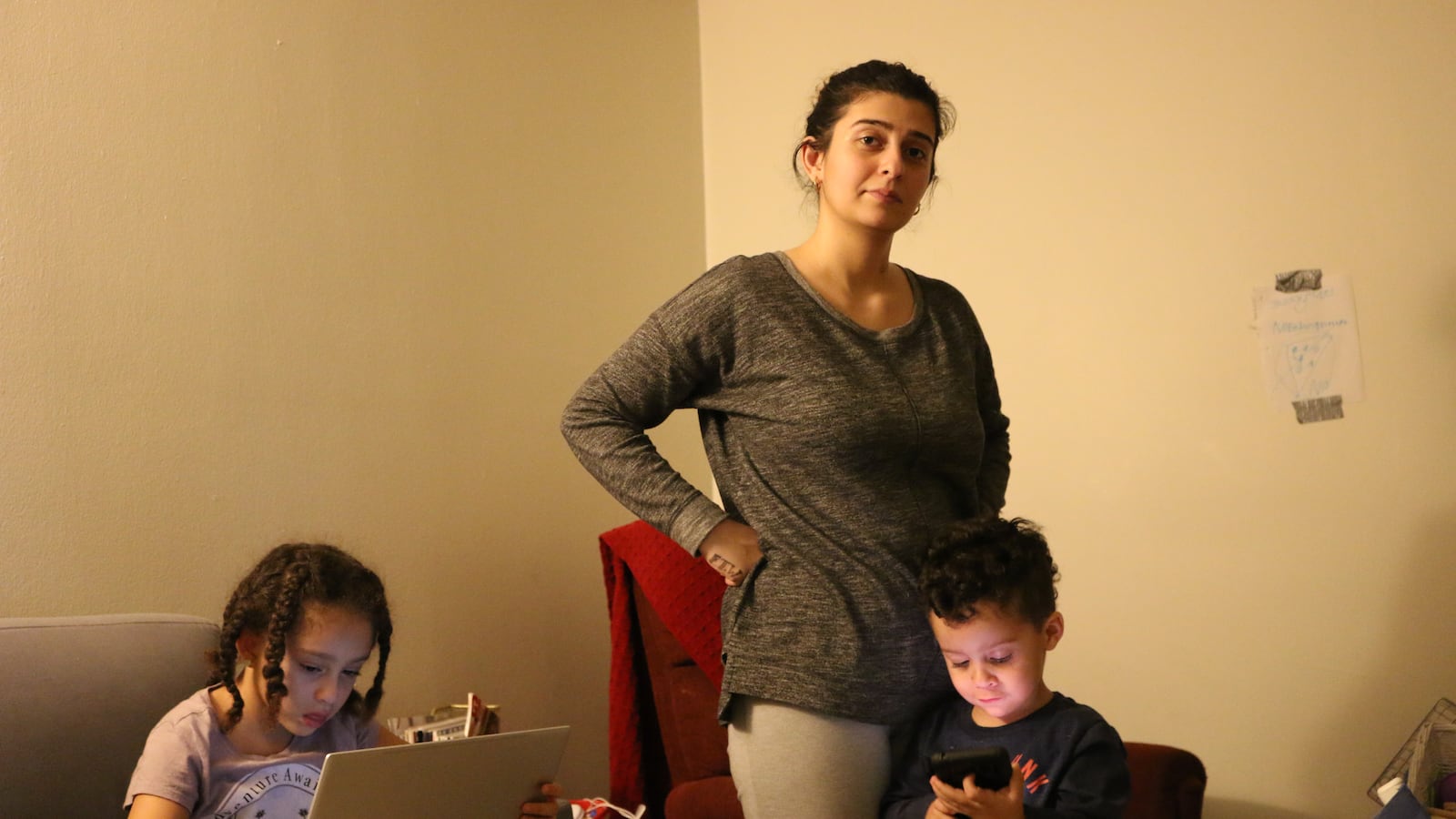A former Success Academy parent filed a federal privacy complaint Thursday claiming the charter network violated her daughter’s rights by releasing her education records to a reporter, including notes from psychologists and her special education learning plan.
The complaint — which is unlikely to result in consequences for Success — comes in response to a Chalkbeat story published Saturday about Jazmiah Vasquez, a seven-year-old student with autism who has not been in school for a year and a half.
Lisa Vasquez, the student’s mother, claimed that Success Academy Prospect Heights, the last school Jazmiah attended, effectively pushed her out by repeatedly calling home about behavioral issues, threatening to call child services, and sending her back to kindergarten after she started first grade.
[7 and out of school since 2017: How Jazmiah slipped through the cracks of NYC’s special ed system]
In response to questions from Chalkbeat about those allegations, Success officials provided detailed records of Jazmiah’s time at the city’s largest charter network, including contemporaneous notes from multiple educators and psychologists, progress reports, and a copy of Jazmiah’s individualized education program, a document that lays out students’ special education needs and services.
Those records paint a different picture of Jazmiah’s time there, suggesting she wasn’t getting into trouble regularly and was making progress, Success officials said. The real problem, the network argued, was her chronic absenteeism, an issue that eventually prompted the school to call child services.
Vasquez strongly disputes Success’ characterization and argues that by providing Jazmiah’s records, Success ran afoul of FERPA, a federal law that protects students’ records from disclosure without their permission.
“At no time did I provide my consent for the school to release any of this information,” Vasquez wrote in her complaint. “This disclosure by Success Academy of my daughter’s education records is an egregious and willful violation.”
Success officials defended their disclosure of student records on the grounds that parents implicitly waive their rights if they go public with their complaints about a school.
“While all of this information is covered by FERPA, Ms. Vasquez chose to make it public when she brought you her story,” Success Academy spokeswoman Ann Powell wrote in an email. “Moreover, we urged you to protect the privacy of Ms. Vasquez and her child by not using their real names, but you declined to do so.”
Vasquez did not request anonymity. And city education department officials told Chalkbeat that they could not answer specific questions about their role in Jazmiah’s case, citing federal privacy laws.
An expert said parents don’t implicitly waive privacy rights when they talk to the press. “FERPA doesn’t include an implied waiver and the Department of Education has never recognized one,” wrote Frank LoMonte, an expert on student privacy at the University of Florida. “So, while I think [Success Academy’s] position makes total sense, FERPA doesn’t make total sense and they’re stuck with it.”
It’s unlikely Success will face any serious consequences from the federal education department, the organization responsible for adjudicating privacy complaints. Since FERPA was passed in 1974, no school has ever lost federal funding due to privacy violations, the most serious possible consequence.
LoMonte said the department will only find a privacy violation if there is a “policy or practice” of giving out protected information, meaning that a single privacy case won’t lead to serious consequences. He said it is not clear whether the department has ever found a school to have violated FERPA.
Leonie Haimson, a privacy advocate and charter school critic, says there is evidence of a pattern of Success violating student privacy. She has helped file at least two privacy complaints about Success, including Vasquez’s and another in a 2015 case in which the charter network disclosed a student’s disciplinary records.
That 2015 complaint “is pending and under review,” federal education department spokeswoman Liz Hill wrote in an email. SUNY, which is responsible for overseeing Success Academy schools, did not respond to a request for comment.
Haimson said she hopes that Vasquez’s complaint will help spur the federal education department to action, though she acknowledged the chances of that are remote.
“It’s the long, drawn out refusal and failure that has lead directly to this other offense,” she said. “They are clearly flouting the law repeatedly.”

